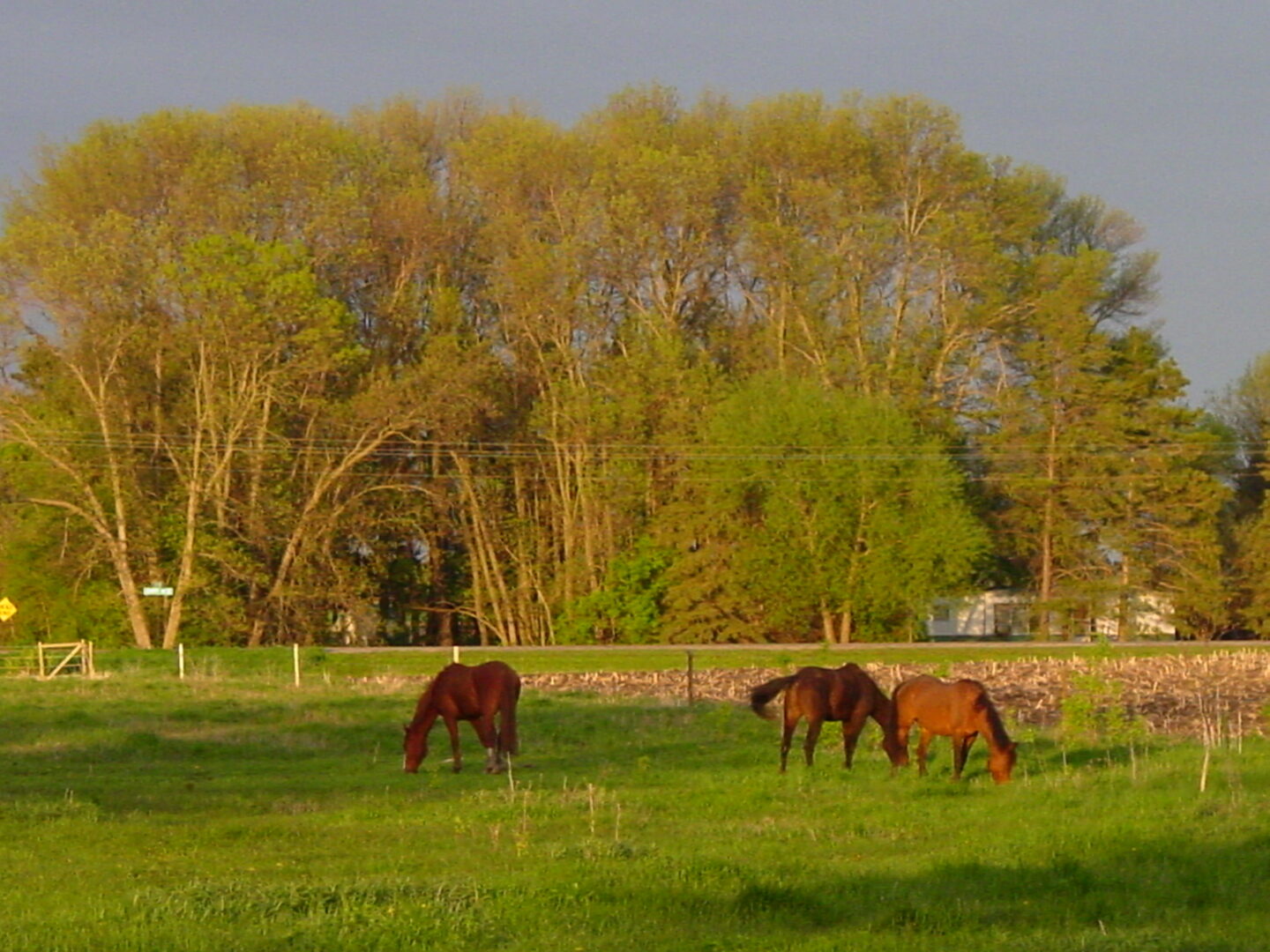Parasites and Pasture Management: Ask the Expert

Question: My two horses tested high in their fecal egg counts; I dewormed them regularly. We had a mild winter and they were still foraging on the pasture. I am wondering if I am managing their manure badly? We drag the manure piles in the pasture, but are we spreading out the parasite eggs and making it worse?
Answer: Good pasture management can help reduce parasites, especially stronglyes. Strongyle larvae develop within the manure pile, migrate onto pasture forages during wet weather and wait to be ingested by horses. Rotational grazing, avoiding overgrazing and ideal stocking rate can help to reduce strongyles. We recommend initiating grazing when pasture grasses are between 6 to 8″ tall and rotating horses to a new pasture (or a drylot) when most of the forage has been grazed down to 3 to 4″ tall. A pasture where most of the forage is below 3″ tall is considered over”grazed. This is especially important when managing strongyles as larvae tend to inhabit the lower part of forage plants. Allowing your horses to graze a pasture during the winter months (when forage re”growth is not possible) may have resulted in over”grazing and ingestion of parasite eggs. We recommend a stocking rate of 2 acres of pasture per adult horse. If the pasture is well managed, this should result in not needing to supplement hay during the grazing season. Parasite populations tend to be greater if the pasture stocking rates are higher (less than 2 acres per horse), especially in over”grazed pastures. Since you have two horses, ideally you would have at least 4 acres of pasture.
Dragging is a recommend pasture management activity. Dragging is necessary to disperse manure piles since horses will rarely graze near these areas. However, to help reduce the parasite load, dragging should be reserved for hot and dry periods of the summer. A few weeks of high temperatures and limited rainfall after dragging will help kill strongyle larvae. During this time, it’s important to remove the horses from the pasture. During wet periods, horse owners should remove the manure from the pasture weekly, if possible. This may not be practical in all situations, but may be necessary in high”risk scenarios.
We suggest you continue to work with your veterinarian and use your fecal egg count results to strategically deworm your horses. Implementing a rotational grazing program, avoiding overgrazing, dragging manure piles during hot and dry periods and confining your horses to the drylot during the winter months should also help reduce the parasite load in your pasture and horses.
This article is reprinted with permission from Krishona Martinson, PhD, University of Minnesota. This and other horse nutrition articles can be found at http://www.extension.umn.edu/agriculture/horse/nutrition/.
